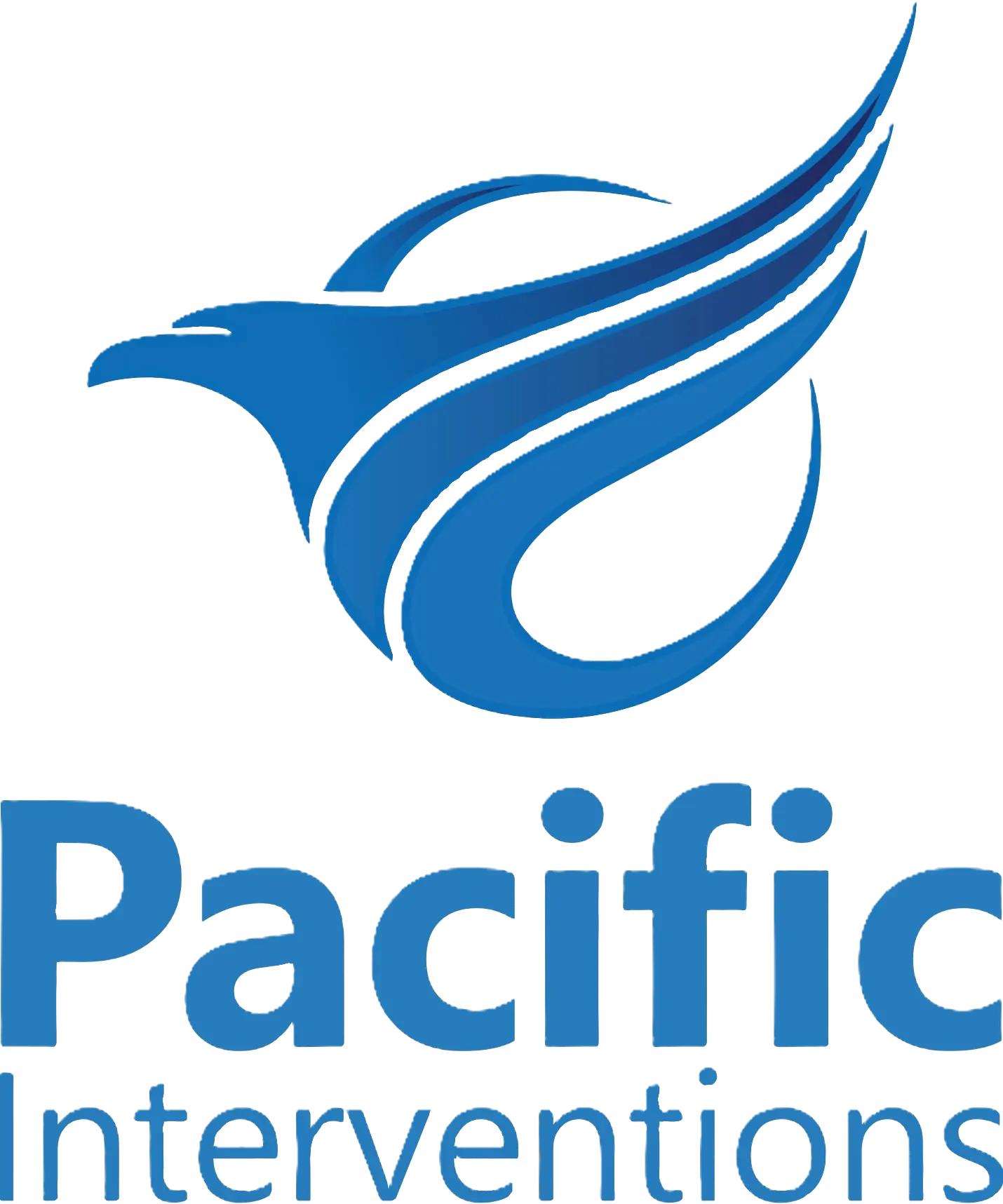The alcohol withdrawal symptoms can be mild, moderate, or even severe in some cases. It can be challenging to know what can be helpful for alcohol withdrawal. If you have developed an alcohol dependency, then you’ve likely been utilizing alcohol for some time. Long-term alcohol abuse is usually brought about by an underlying condition or physical pain, in which alcohol was used to treat those problems through self-medication. Often, people are enticed to return to alcohol to alleviate the discomfort of withdrawal symptoms.
This blog aims to explore alcohol withdrawal symptoms, the strategies that can help patients manage their symptoms, and available treatment options to successfully manage alcohol withdrawal symptoms. Pacific Interventions can help guide you in the management and treatment of alcohol withdrawal by assessing the best possible treatment option for your situation.
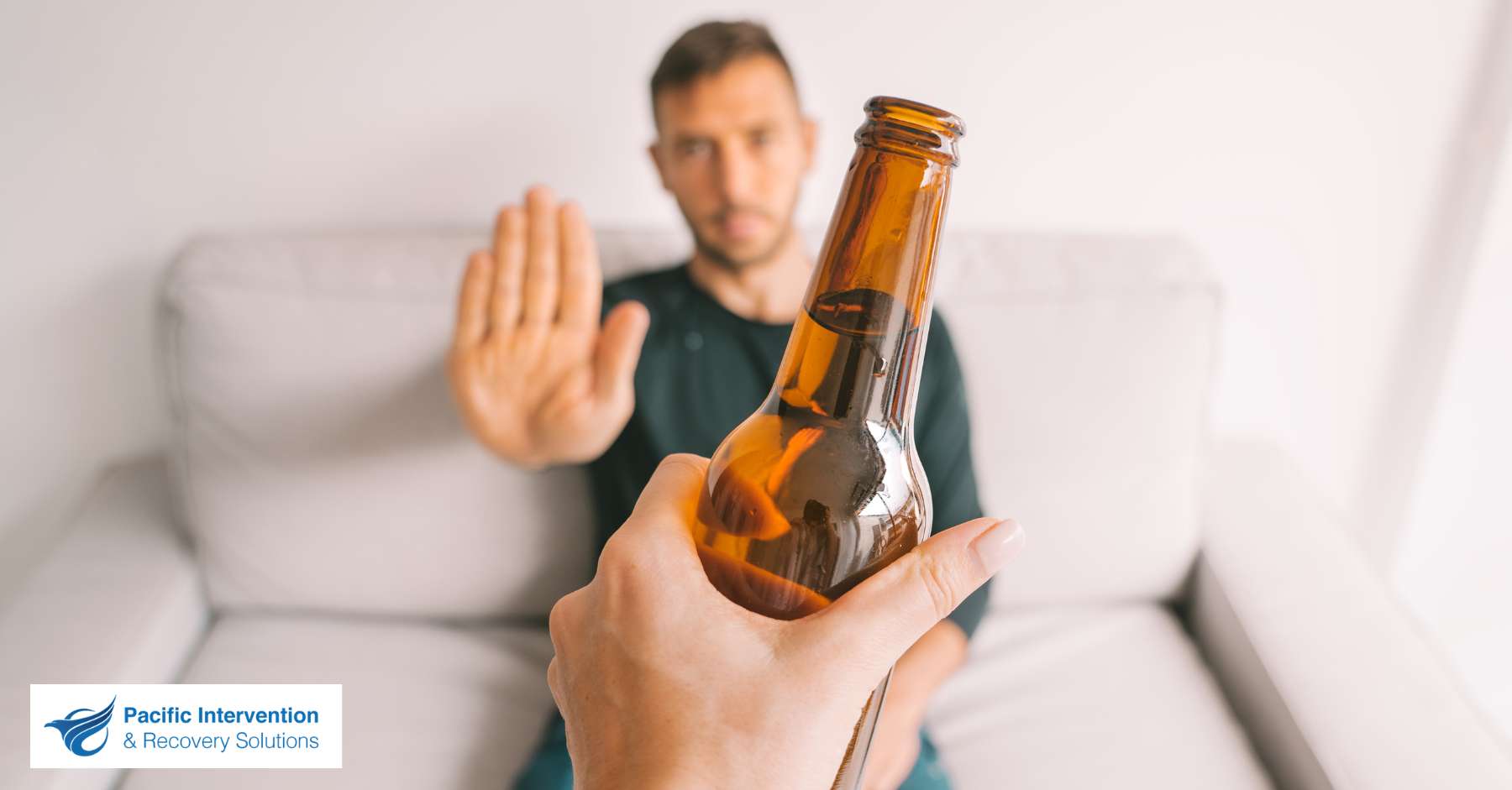
What Are the Common Alcohol Withdrawal Symptoms?
There are several common alcohol withdrawal symptoms, but not everyone will face these symptoms. They can be different from slight to intense and are typically proportionate to the amount of alcohol you usually consume and how long you’ve been taking it.
Psychological symptoms of alcohol withdrawal can include:
- Anxiety
- Changes in mood
- Depression
- Trouble thinking clearly
- Exhaustion
- Irritability
Physical symptoms of alcohol withdrawal can include:
- Headaches
- Higher blood pressure
- Loss of appetite
- Nausea or vomiting
- Fast heartbeat
- Sweating and clammy skin
- Tremors in hands
- Difficulty sleeping
- Seizures
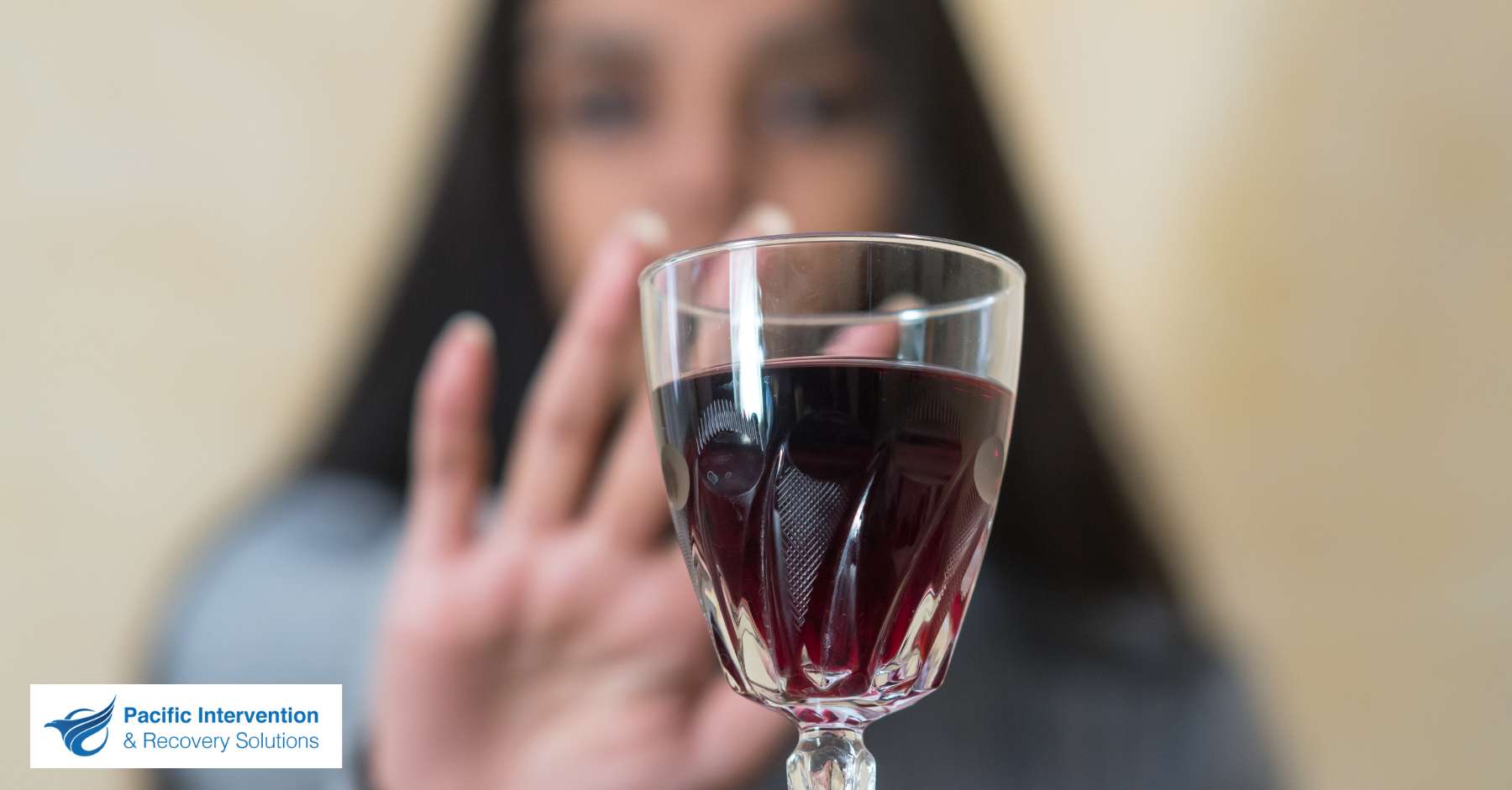
What Are the Best Ways to Help Control Alcohol Withdrawal Signs?
There are also some ways that you can employ to help control symptoms of alcohol withdrawal if you are undergoing treatment. Some of the best ways to help you control alcohol withdrawal symptoms usually include:
- Consult your doctor about medications that can help control alcohol withdrawal symptoms: Your doctor may ask you to take various medications to help alleviate withdrawal symptoms, such as benzodiazepines, anti-anxiety drugs, and vitamins.
- Remain hydrated: You may lose a large amount of water during withdrawal, especially if you are vomiting. Taking electrolytes and drinking water can help you stay hydrated and ease nausea.
- Adopt a healthy diet: A balanced, nutritious diet will help maintain stable glucose levels.
- Take a cool shower: A cool shower can help you avoid worrying about physical symptoms of withdrawal and may help prevent symptoms like hot flashes, sweating, and clammy skin.
- Ask a supportive friend to help you: You can ask someone to stay with you. If you do not have someone to stay with you the whole time, you can invite friends or family to check in on you regularly.
- Focus on moderate exercise: You might not be allowed to do strenuous exercise, but moderate exercise can still be helpful. Exercise can be a helpful mind-body tool for people addressing substance use disorders.
- Try to stay busy: Search for ways to stay occupied. This can not only prevent you from thinking about withdrawal symptoms; it can also help you fight alcohol cravings. Reading a book, going for a walk, talking to a friend, listening to music, or beginning a new hobby can be good choices.
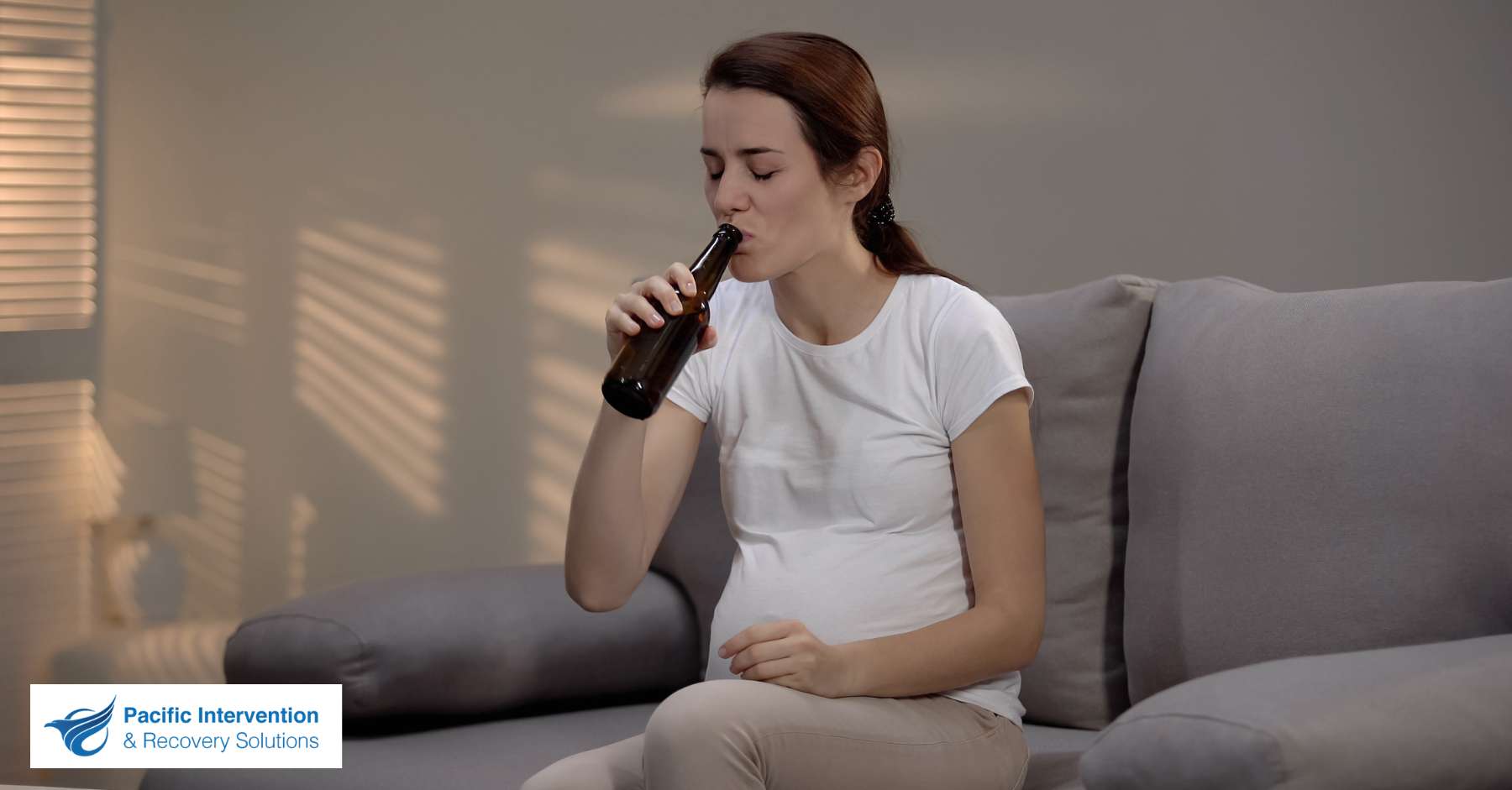
How to Quit Alcohol and Manage Withdrawal?
The best way to quit alcohol while staying safe from unsuitable withdrawal symptoms is to ask for help. If you have concluded that you can’t quit drinking, one choice is to seek help from a family doctor or healthcare provider such as Pacific Interventions.
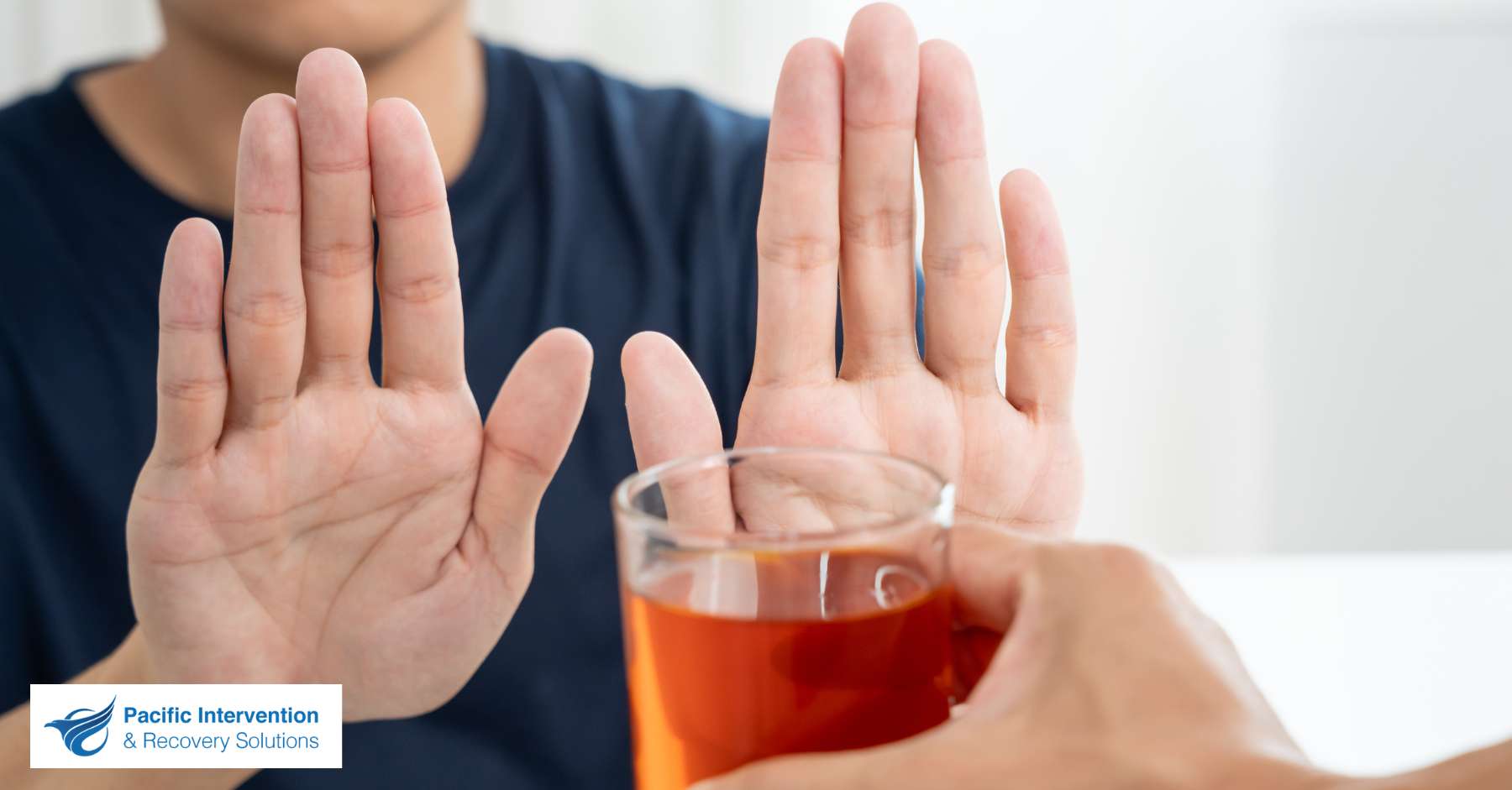
How to Treat Alcohol Withdrawal?
Some medical treatments will prevent or minimize most of the symptoms you could experience if you stop drinking alcohol.
Benzodiazepines (tranquillizers) are the primary treatment for alcohol withdrawal symptoms, such as the shakes, and are also key to inhibiting severe complications like delirium tremens.
A healthcare provider may also recommend vitamins and dietary modifications to help with withdrawal symptoms. People who use vast amounts of alcohol may be more susceptible to specific nutritional deficiencies, such as the B1 vitamin. Your doctor may suggest taking supplements to address these deficiencies.
Adopting a healthy diet during withdrawal may also facilitate digestion and boost energy levels. This may be useful for reducing withdrawal symptoms like stomach upset and feelings of fatigue.

Detox Programs to Treat Alcohol Withdrawal
If you have undergone intense withdrawal in the past, it is suggested that you attend a professional detoxification program to reduce the risk of alcohol withdrawal-related complications. Detox programs include short-term inpatient therapy during which well-trained professionals supervise your withdrawal carefully and administer medications as required.
One benefit of inpatient detox is that you will distance yourself from drinking triggers in your home environment, making it easier to stop the pattern of drinking.
Conclusion
Dealing with alcohol withdrawal requires seeking medical help to ensure a safe and effective treatment plan. It is crucial to address alcohol withdrawal symptoms under the supervision of healthcare professionals to prevent complications and promote a successful recovery. It is essential to give priority to one’s health and well-being by seeking appropriate care and guidance during the alcohol withdrawal process.
FAQs
1. How should alcohol withdrawal be managed?
Alcohol withdrawal should be managed under the supervision of a healthcare professional to ensure a safe and effective treatment plan.
2. What are the common symptoms of alcohol withdrawal?
Common symptoms of alcohol withdrawal can be anxiety, tremors, hallucinations, seizures, and insomnia. These symptoms can range from slight to intense and should be monitored and treated by healthcare professionals.
3. What treatment options are available for alcohol withdrawal?
Treatment options for alcohol withdrawal may include medications to manage symptoms, therapy to deal with underlying issues, and support groups to promote long-term sobriety.
4. How can I support someone undergoing alcohol withdrawal?
Supporting someone experiencing alcohol withdrawal includes providing emotional support, encouraging them to seek professional assistance, and creating a safe and supportive environment.



